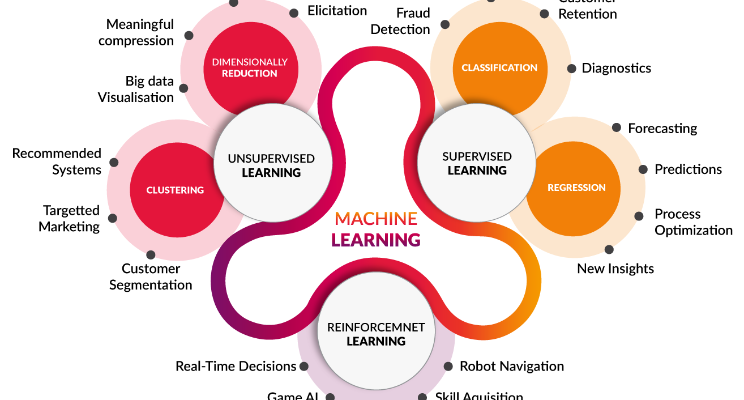Index Surge: Amplifying Your Insights
Stay updated with the latest trends and news across various industries.
When Machines Start Learning: A Journey into Data-Driven Decisions
Unlock the secrets of data-driven decisions and discover how machines are transforming our world—join the journey today!
Understanding the Basics of Machine Learning: How Data Drives Intelligent Decisions
Machine Learning is a subfield of artificial intelligence that focuses on the development of algorithms that enable computers to learn from data. Understanding the basics of machine learning begins with recognizing the pivotal role that data plays in driving intelligent decisions. Data serves as the foundation for training machine learning models, allowing them to identify patterns, make predictions, and improve over time. The quality and quantity of data directly influence the model's performance, making it essential for practitioners to collect relevant and comprehensive datasets.
There are several fundamental concepts to grasp when diving into machine learning, including supervised learning, unsupervised learning, and reinforcement learning. In supervised learning, algorithms learn from labeled data, making it suitable for tasks like classification and regression. On the other hand, unsupervised learning deals with unlabeled data, enabling models to discover hidden patterns and relationships within the data. Lastly, reinforcement learning involves training algorithms to make decisions through trial and error, optimizing actions based on the rewards received. Understanding these types is crucial for leveraging machine learning to extract meaningful insights from data and make informed decisions.

The Impact of Data-Driven Decision Making on Modern Business Strategies
Data-driven decision making has transformed the way businesses develop their strategies and respond to market demands. By leveraging big data analytics, organizations can gather and analyze vast amounts of information to identify current trends and customer preferences. This process allows companies to make informed choices rather than relying on intuition. The integration of data analytics not only enhances operational efficiency but also enables businesses to tailor their offerings, leading to improved customer satisfaction and loyalty.
Moreover, the impact of data-driven decision making extends beyond mere operational adjustments; it shapes long-term business strategies. Companies that utilize data insights can effectively forecast market shifts, thereby positioning themselves ahead of the competition. For instance, implementing predictive analytics helps organizations anticipate customer behaviors and optimize inventory management. Consequently, those businesses that embrace a culture of data literacy and prioritize data-driven strategies are likely to experience sustainable growth and innovation in today's rapidly evolving market.
What Are the Key Challenges in Implementing Machine Learning Solutions?
Implementing machine learning solutions presents several key challenges that organizations must navigate to achieve successful outcomes. Firstly, data quality is paramount; if the data used for training models is incomplete, biased, or outdated, it can lead to poor performance and inaccurate predictions. Organizations often struggle with data collection, cleansing, and integration from various sources, which complicates the modeling process. Moreover, organizations must also contend with issues related to data governance, ensuring that the data used complies with regulations and ethical standards, particularly regarding privacy concerns.
Another significant challenge is the skills gap within teams. Many companies face difficulties in sourcing professionals with the necessary expertise in machine learning and data science. This shortage can lead to delays in project implementation and hinder innovation. Additionally, there is often a lack of understanding about how to operationalize machine learning models and incorporate them into existing workflows. To overcome these hurdles, organizations must invest in training and development, fostering a culture of continuous learning that empowers employees to adapt to new technologies and methodologies.